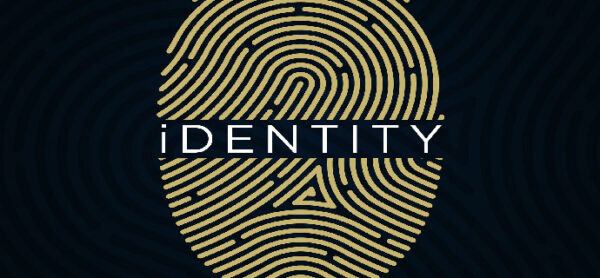As human beings, there are a lot of factors that influence our behavior and actions, directly or indirectly. In the case of antisocial personality disorder, it is no different. Such factors may include a traumatic experience or the environment in which the child was raised. Since this disorder is common among children, both parents and guardians should keep a close watch. Without further ado, let’s get right to explaining antisocial personality disorder, its causes, and test questions therapists ask.
Overview
Antisocial personality disorder (ASPD) is characterized by a pattern of socially irresponsible, exploitative, and guiltless behavior. ASPD is associated with co-occurring mental health and addictive disorders and medical comorbidity
ASPD is a predictor of poor treatment response. It begins early in life, usually by age 8 years. Diagnosed as conduct disorder in childhood, the diagnosis converts to ASPD at age 18 if antisocial behaviors have persisted.
Earlier onset is associated with a poorer prognosis. Other things that can make a difference are getting married, getting a job, going to jail early (or being sentenced as a child), and how well a person socializes.
Antisocial Personality Disorder
Antisocial personality disorder is a mental health condition in which a person has a long-term pattern of manipulating, exploiting, or breaking the rights of others. This behavior is often considered criminal.
Causes
The exact causes of antisocial personality disorder are not known. Personality is shaped by a variety of forces, including nature.
#1. Genetics
ASPD is more common among the first-degree biological relatives of those with the disorder than in the general population. Research suggests that ASPD is likely strongly linked to inheritance and that environmental influences probably exacerbate its development.
#2. Upbringing
Upbringing can also have an important influence. Childhood abuse, neglect, and trauma have also been linked to the onset of ASPD. If a child’s parents are abusive and dysfunctional, children may learn such behavioral patterns and later display them with their own kids. Kids who grow up in disorganized and neglectful homes also lack the opportunities to develop a strong sense of discipline, self-control, and empathy for others.
#3. Brain Differences
A number of factors have been found to increase the risk of the disorder, including smoking during pregnancy and abnormal brain function. Research suggests that people with ASPD have differences in the frontal lobe, the area of the brain that plays a role in planning and judgment.
Diagnosis of ASPD
Symptoms of antisocial personality disorder often begin during childhood, although the condition is often not diagnosed until later in life. As children, it is common for those who develop this disorder to experience violent bursts of anger and show cruelty towards animals. They are also often described as bullies by their peers.
In order to be diagnosed with ASPD, a person must display a disregard and violation of the rights of others before the age of 15. This disregard is indicated by displaying at least one of seven symptoms:
- Disregard for the safety of the self and others
- Failure to obey laws
- Impulsive behaviour
- Irritability and aggression
- Lack of remorse for actions
- Lying or manipulating others for profit or amusement
- Pattern of irresponsibility
- In addition to displaying at least one of these symptoms, the person must be at least 18 years old and not display antisocial behaviour as a result of another condition, such as bipolar disorder or schizophrenia.
According to some critics, the diagnostic criteria are too focused on behaviours related to criminal actions. Concerns have been raised that the diagnosis may at times be misapplied to individuals in low socioeconomic or urban settings in which seemingly antisocial behavior may be a part of a protective survival strategy. Because of this, it is possible that the prevalence of this disorder has been overstated.
Antisocial Personality Disorder Test
The sociopathy test is based on famous and well-regarded instruments for the assessment of the clinical concept of sociopathy, which is also known as psychopathy or antisocial personality disorder. But free online quizzes like this one can only give you a general idea of whether you might have a personality disorder. They can’t tell you for sure if you do. The quiz is intended for educational purposes only. Only a trained mental health professional can give an accurate assessment of someone’s mental health.
As a sociopath test, which allows you to screen yourself for the signs and symptoms of this personality disorder, it has been striven to make the test as reliable and valid as possible, by subjecting it to statistical controls and validation. But free online quizzes like this sociopath test do not offer professional assessments or suggestions of any kind; the test is given “as is.” For more information about any of the online tests and quizzes.
Antisocial Personality Disorder Test Questions
Here is a list of questions about life experiences that are common among people who have been diagnosed with an antisocial personality disorder. This is a mental health condition that is marked by a persistent lack of empathy and disregard for the feelings of others.
Please read each question carefully and indicate whether you have experienced these thoughts or behaviors.
- Do you act impulsively?
- Do you fail to plan ahead?
- Do you consistently fail to fulfill financial obligations?
- Do you find yourself unable to empathize with others dealing with difficult situations?
- If you hurt someone else’s feelings, do you lack remorse or guilt?
- Are you aggressive?
- Do you engage in unnecessary risk-taking or dangerous behavior with no regard for the safety of yourself or others?
- Do you consider yourself superior to others?
- Do you use charm or wit to manipulate others for your own benefit?
With your answers to the questions above, a psychiatrist or therapist will draw a conclusion.
What Type of Personality Disorder Is Antisocial
It is natural to sometimes put our own needs, pleasure, or personal gain before those of others around us. However, if these actions occur very frequently and you struggle to keep stability in your life, or you regularly act impulsively out of anger or lack of consideration for others, this could lead to a diagnosis of antisocial personality disorder. Antisocial personality disorder, also called sociopathy, is a mental disorder in which a person consistently doesn’t care about right and wrong and ignores the rights and feelings of others. People with antisocial personality disorder tend to antagonize, manipulate, or treat others harshly or with callous indifference. They show no guilt or remorse for their behavior
Although antisocial personality disorder is considered lifelong, in some people, certain symptoms — particularly destructive and criminal behavior — may decrease over time. But it’s not clear whether this decrease is a result of aging or an increased awareness of the consequences of antisocial behavior.
Complications
Complications, consequences, and problems of antisocial personality disorder may include, for example:
- Spouse abuse or child abuse or neglect
- Problems with alcohol or substance use
- Being in jail or prison
- Homicidal or suicidal behaviors
- Having other mental health disorders such as depression or anxiety
- Low social and economic status and homelessness
- Premature death, usually as a result of violence
Prevention
There’s no sure way to prevent antisocial personality disorder from developing in those at risk. Because antisocial behavior is thought to have its roots in childhood, parents, teachers, and pediatricians may be able to spot early warning signs. It may help to try to identify those most at risk, such as children who show signs of conduct disorder, and then offer early intervention.
What Emotions ASPD Have
People with ASPD often mistreat others, even when such behaviors aren’t in their best interest. They typically show little remorse for their actions. Their disregard for social norms can make it difficult to maintain relationships, keep a job, or stay out of jail. A person with an antisocial personality disorder can be treated, but they are not likely to do so until their behavior has caused serious problems.
People with antisocial personality disorder (ASPD) have been studied based on the emotional stories they tell. This was done to test the idea that people with ASPD have trouble using emotional language. The extent to which antisocial personality disorder is linked to antisocial behavior, psychopathy, and criminal behavior has been a topic of study for a long time. The literature has found that these syndromes are correlated but not equivalent.
But many theories about how psychopathic or antisocial personalities start, how they work, and what they look like say that people with these disorders often have problems with their emotions. The literature typically reports that psychopaths exhibit emotional impairments, such as dysfunctional affective processing (a lack of insight into emotions and an inability to analyze past experience), weak emotional control, predominantly negative affect, and the inability to experience more complex emotions—in particular, closeness, respect, trust, and guilt. The antisocial personality is controlled on many levels by traits like ruthlessness, narcissism, hostility, manipulation, and a desire for new experiences.
Emotional Traits
Because learning about emotions is closely linked to how they are expressed through language, a linguistic analysis could be used to find the main emotional traits. The current study focused on the emotions of love, hate, and anxiety because previous research had shown that people with antisocial personality disorder have trouble with these feelings and that they can’t feel love or intimacy based on love. These individuals are also unable to feel anxiety but exhibit the capacity to experience emotions connected with hate, such as anger or hostility
What are the types of personality disorder?
- Schizotypal personality disorder
- Paranoid personality disorder.
- Schizoid personality disorder.
What are the causes of antisocial behavior?
This disorder is thought to be caused by a combination of genetic and environmental factors, including child maltreatment.
Conclusion
As human beings, there are a lot of factors that influence our behavior and actions, directly or indirectly. In the case of antisocial personality disorder, it is no different. Be that as it may, with the help of a certified therapist, an Antisocial Personality Disorder patient has a hope of recovery.



